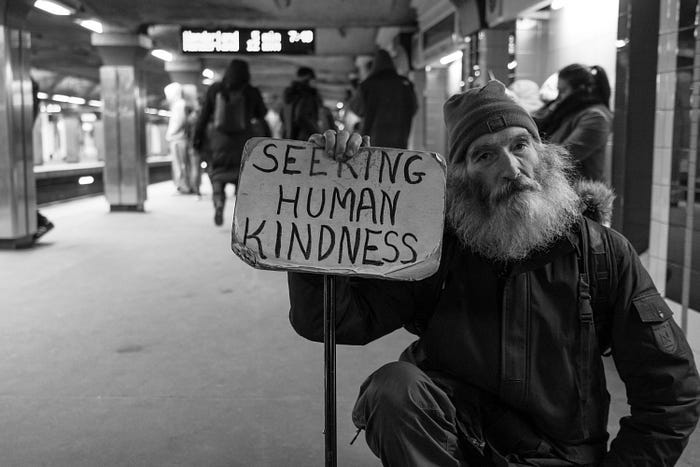The SCOTUS Just Bid Us “Happy Summer!” With a Slew of Shameful Decisions — Part III: Criminalizing Homelessness
Part three.

Before leaving on summer vacation, the almighty unelected black-robed monarchs on the United States Supreme Court (SCOTUS) handed down some pretty awful decisions.
As explained in part one, it overturned “the Chevron deference,” the 40-year-old decision that authorized federal agencies to appropriately operate within the scope of existing legislation if that legislation does not specifically prohibit rules from being enacted.
As explained in part two, SCOTUS ruled 6–3 that the U.S. Department of Justice (DOJ) overreached when it presented federal charges against hundreds of supporters of the former president who attacked the U.S. Capitol.
In another disgusting display, the almighty unelected black-robed monarchs with lifetime appointments decided 6–3 in the Grants Pass v. Johnson case that permits municipalities in the western United States to criminalize unhoused people sleeping outdoors even when no access to shelter is available. This reverses an appeals court ruling striking down local ordinances that fined people $295 for sleeping outside.
In the majority opinion, Justice Neil Gorsuch explained:
Homelessness is complex. Its causes are many. So may be the public policy responses required to address it. A handful of federal judges cannot begin to ‘match’ the collective wisdom the American people possess in deciding ‘how best to handle’ a pressing social question like homelessness.
Such punishments do not qualify as cruel because they are not designed to “superad[d]” [sic] “terror, pain, or disgrace. Nor are they unusual, because similarly limited fines and jail terms have been and remain among “the usual mode[s]” for punishing criminal offenses throughout the country. Indeed, cities and States across the country have long employed similar punishments for similar offenses.
Dissenting with Justices Elena Kagan, and Ketanji Brown Jackson, Justice Sonia Sotomayor countered:
For some people, sleeping outside is their only option. The City of Grants Pass jails and fines those people for sleeping anywhere in public at any time, including in their cars, if they use as little as a blanket to keep warm or a rolled-up shirt as a pillow. For people with no access to shelter, that punishes them for being homeless. That is unconscionable and unconstitutional.
In a statement in which it calls the decision “profoundly disappointing,” the National Homelessness Law Center stated:
Arresting or fining people for trying to survive is expensive, counterproductive and cruel. This inhumane ruling will make homelessness worse in Grants Pass and nationwide. Cities are now even more empowered to neglect proven housing-based solutions and to arrest or fine those with no choice but to sleep outdoors.
The nation’s highest court is not the most salacious of topics. It’s a rare individual these days can name even one, let alone all nine, justices. But it is that high court that has been responsible for myriad consequential decisions that have shaped American culture. From the 1896 Plessy vs. Ferguson case that legalized racial segregation to the Brown vs. Board of Education case that reversed it; Roe vs. Wade that legalized abortion nationwide and the court reversed two years ago; the Griswold v. Connecticut case that defends the right to contraception; Loving v. Virginia that legalizes interracial marriage; the Lawrence v. Texas case that protects homosexual intercourse; the Obergefell v. Hodges case legalizing same-sex marriage; anti-voting rights decisions in the Shelby County v. Holder and Brnovich v. DNC cases; to “corporate personhood” decisions that assert “money equals free speech” and “corporations are people” encouraging political bribery, the almighty unelected black-robed monarchs with lifetime appointments on the United States Supreme Court influence our daily lives behind the scenes for generations.



